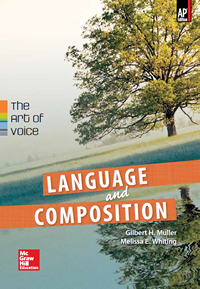
Language and Composition: The Art of Voice (Muller and Whiting)Chapter 4: Writing a Research PaperChapter OverviewResearch actually means the careful investigation of a subject in order to discover or revise facts, theories, or applications. Your purpose is to demonstrate how other researchers approach a problem, how you synthesize their most useful ideas, and how you treat that problem yourself. A good research paper subtly blends your ideas and synthesizes the attitudes or findings of others. In research writing, you are dealing with ideas that are already in the public domain, but you are also contributing to knowledge. When your ideas—rather than the ideas of others—become the center of the research process, writing a research project becomes dynamic instead of static. Consider the following tasks as research ideas:
How would a professional researcher view these projects? First, the researcher sees a subject as a problem rather than a mere topic. The researcher has the task of developing or testing a hypothesis stemming from the particular problem—for example, whether a vegetarian diet effectively wards off cancer. Hypothesis formation is at the heart of professional research. Second, the researcher often conducts primary as well as secondary research. Primary research relies on analysis and synthesis of texts, letters, manuscripts, and other materials, whether written, visual, or aural. Secondary research relies on sources that comment on the primary sources. For example, a critic’s commentary on Citizen Kane or a historian’s analysis of a presidential election would be secondary sources; the film itself or a speech delivered by the president would be primary sources. Because primary sources are not necessarily more reliable than secondary sources, you must always evaluate the reliability of both types of material. Critics can misinterpret, and experts often disagree, forcing you to weigh evidence and reach your own conclusions. Third, all researchers face deadlines. Confronted with deadlines, professional researchers learn to telescope their efforts in order to obtain information quickly. Common strategies include networking (using personal and professional contacts as well as guides to organizations), browsing or searching online, conducting bibliographical searches, and turning to online databases, annotated bibliographies (listing articles on the topic with commentaries on each item), and specialized indexes (focusing on a particular field or discipline). Other strategies include consulting review articles, which evaluate other resources, and browsing through current journals and periodicals (which may provide useful background as well as the most current thinking about the topic). Finally, good researchers recognize that they cannot confine their search for evidence to one subject area, such as history or physics. Much professional researching cuts across academic subjects and disciplines. The interdisciplinary nature of many research projects creates special problems for the researcher, especially in the use of bibliographical materials, which tend to be subject-oriented. Such research is not beyond your talents and abilities. Learn not only how to use library and electronic sources selectively and efficiently, but also how to view the world outside your library and computer as a vast laboratory to be used fruitfully in order to solve your research problems. |  |















